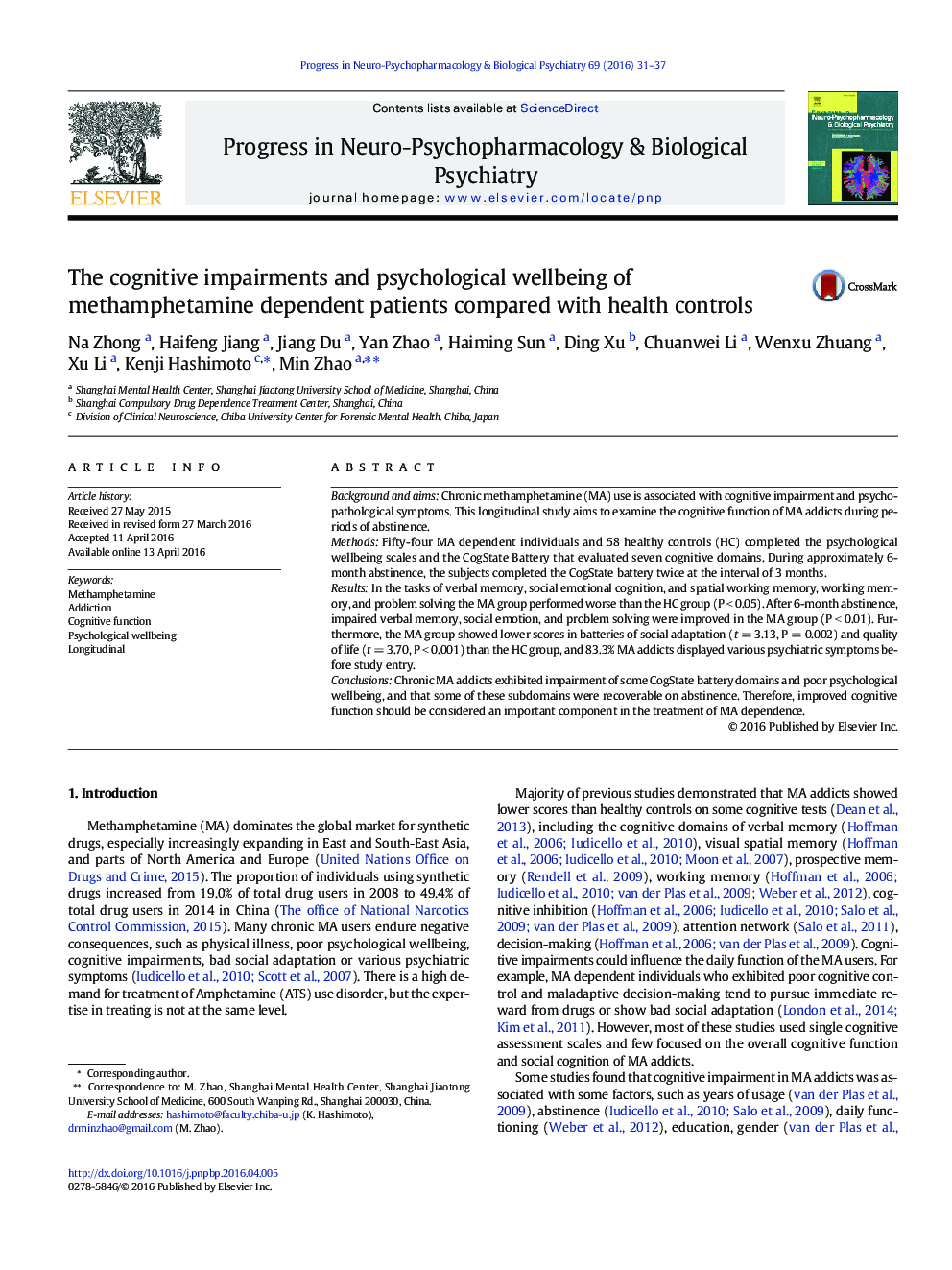| Article ID | Journal | Published Year | Pages | File Type |
|---|---|---|---|---|
| 2564682 | Progress in Neuro-Psychopharmacology and Biological Psychiatry | 2016 | 7 Pages |
•Methamphetamine addicts display overall cognitive impairments and poor psychological wellbeing.•After 6-month abstinence, impaired verbal memory, problem solving and social emotional of Methamphetamine addicts improved.•The cognitive impairments of methamphetamine addicts relate with their quality of life, first drug use and social cognition.
Background and aimsChronic methamphetamine (MA) use is associated with cognitive impairment and psychopathological symptoms. This longitudinal study aims to examine the cognitive function of MA addicts during periods of abstinence.MethodsFifty-four MA dependent individuals and 58 healthy controls (HC) completed the psychological wellbeing scales and the CogState Battery that evaluated seven cognitive domains. During approximately 6-month abstinence, the subjects completed the CogState battery twice at the interval of 3 months.ResultsIn the tasks of verbal memory, social emotional cognition, and spatial working memory, working memory, and problem solving the MA group performed worse than the HC group (P < 0.05). After 6-month abstinence, impaired verbal memory, social emotion, and problem solving were improved in the MA group (P < 0.01). Furthermore, the MA group showed lower scores in batteries of social adaptation (t = 3.13, P = 0.002) and quality of life (t = 3.70, P < 0.001) than the HC group, and 83.3% MA addicts displayed various psychiatric symptoms before study entry.ConclusionsChronic MA addicts exhibited impairment of some CogState battery domains and poor psychological wellbeing, and that some of these subdomains were recoverable on abstinence. Therefore, improved cognitive function should be considered an important component in the treatment of MA dependence.
